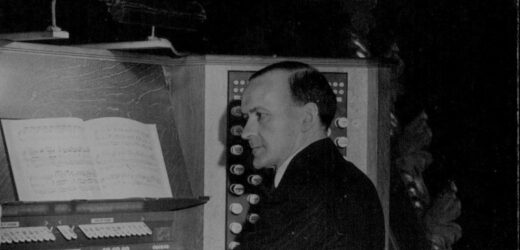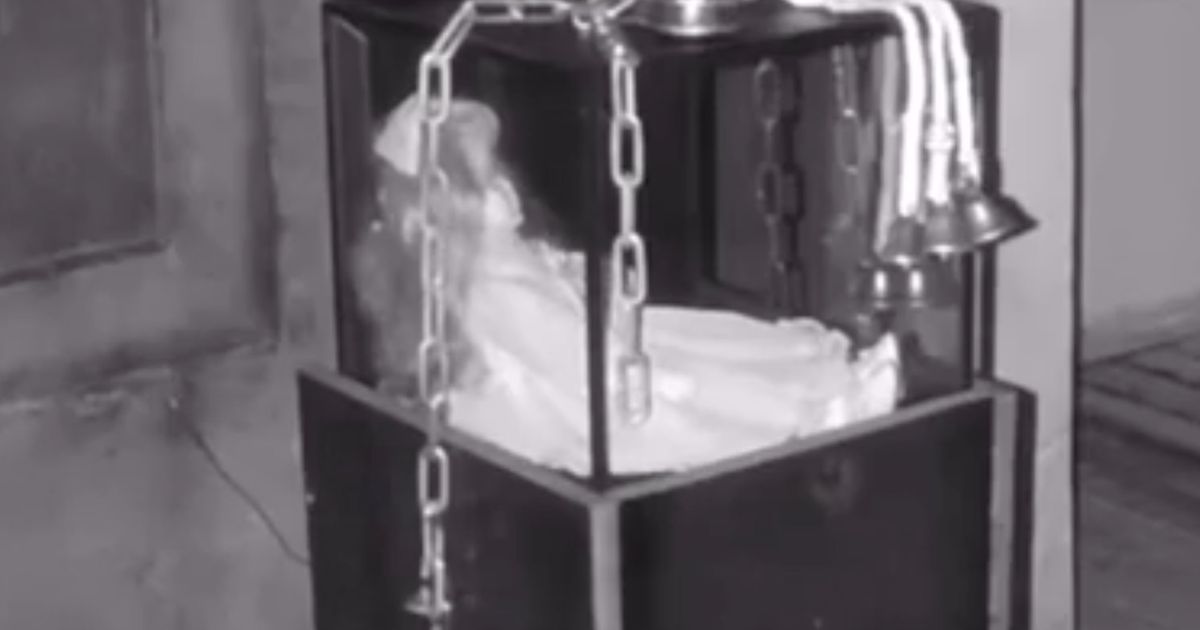Save articles for later
Add articles to your saved list and come back to them any time.
London: On a cold, rainswept day June day almost 70 years ago the eyes of the world were on a young Elizabeth II who was about to be crowned queen.
But inside Westminster Abbey, William McKie was quite the nervous wreck, and he perched on a high, narrow ledge, conducting a 400-strong coronation choir without a safety rail.
William McKie, the organist at Westminister Abbey,
McKie, a brilliant organist from Melbourne, was the man given overall responsibility for the music for the occasion. He is one of just two Australians, along with classical scholar Gilbert Murray, to be buried in the ancient church in London which has hosted every coronation since 1066.
“It was a big job,” former BBC journalist James Wilkinson, a young chorister that day, would recall years later. “And he did it exceptionally well.”
The precarious position McKie found himself in during the service would likely fall foul of health and safety laws nowadays. And would have not done much to quell his nerves.
Wilkinson said even at the best of times McKie, as the Abbey’s Master of the Choristers, was a volatile character.
William McKie conducting the rehersal of the coronation choir.
“He had a terrible temper and often lost it with the choir. Then he would be very remorseful and take us all out to tea,” Wilkinson told The Times last year ahead of the Platinum Jubilee celebration, recalling how the coronation put McKie under enormous pressure.
“As the day approached he had to be wined and dined by various colleagues and friends who said, ‘Come on, you know you can do this’.”
The son of an Anglican vicar, McKie was born in Collingwood and educated at Melbourne Grammar, before going on to study the organ at the Royal College of Music in London.
He was appointed to the Abbey in 1941 and took up his post in 1946 after returning from war service in the RAF Volunteer Reserve. McKie was influential in rebuilding Westminster Abbey’s musical tradition after the ward.
In the same year, he arranged the music for the wedding of the then Princess Elizabeth and Prince Philip and composed his motet We wait for thy loving kindness, O God for the ceremony.
In a letter dated February 1953, Ralph Vaughan Williams, among the best-known British composers of the 20th century, wrote to McKie in an attempt to include a hymn – The Old Hundred (‘All people that on earth do dwell’) – with which the congregation could join in.
“I do not think the fanfare at the beginning and end will upset the congregation, but if you still think, so I will cut them out,” Vaughan Williams wrote.
A scene from Queen Elizabeth’s coronation in 1952.Credit: AP
“I should like all the extra fanfare trumpets to play in the introduction and before the last verse. Could you tell me the size and composition of your orchestra and then when you have approved this (if you do) I will start scoring it.”
Wilkinson, then 12, remembered McKie as a “very arresting character; tall, with a jutting chin, who, even on relatively informal occasions would wear pin-striped trousers and a black jacket.“
He recalled the organisation of the coronation as a “massive project”.
“It went on for six months and the normal seating was increased from 2000 to about 8000.”
He said away from the noise of the building work, rehearsals began in earnest, climaxing in the main rehearsal just a couple of days before the coronation itself.
Wilkinson recalled the climactic moment when Elizabeth was crowned and the whole congregation shouted, “God save the Queen, long live the Queen.”
“Indian princes dressed in gold and silks and highly coloured costumes and turbans, and the peers in their crimson robes trimmed with white ermine fur,” he said.
McKie was lauded for interspersing contemporary compositions with older works steeped in the traditions of coronations past. It proved the high point of his career.
On the day before the event, he received a knighthood in the Queen’s Coronation Honours in recognition of his great musical contribution to the Commonwealth.
It made him a star at home too. In September of that year he returned home to Melbourne for the first time in 15 years. A brief item appeared The Sydney Morning Herald, announcing the Melbourne-born organist, “who selected, directed and conducted the music for Queen Elizabeth’s coronation”, had come to Australia to help raise £1 million for the restoration of the abbey by giving organ recitals in the Anglican cathedrals of all state capital.
Australian author and historian Geoffrey Dutton once recalled that, while McKie was “a perfectionist”, there was “also a lot of fun in him”.
McKie arranged the music for Princess Margaret’s wedding in 1960 and retired in 1963 after 22 years at Westminster Abbey. He retired to Kent before moving to Ottawa, Canada remaining there until he died in 1984.
Get a note directly from our foreign correspondents on what’s making headlines around the world. Sign up for the weekly What in the World newsletter here.
Most Viewed in World
From our partners
Source: Read Full Article





